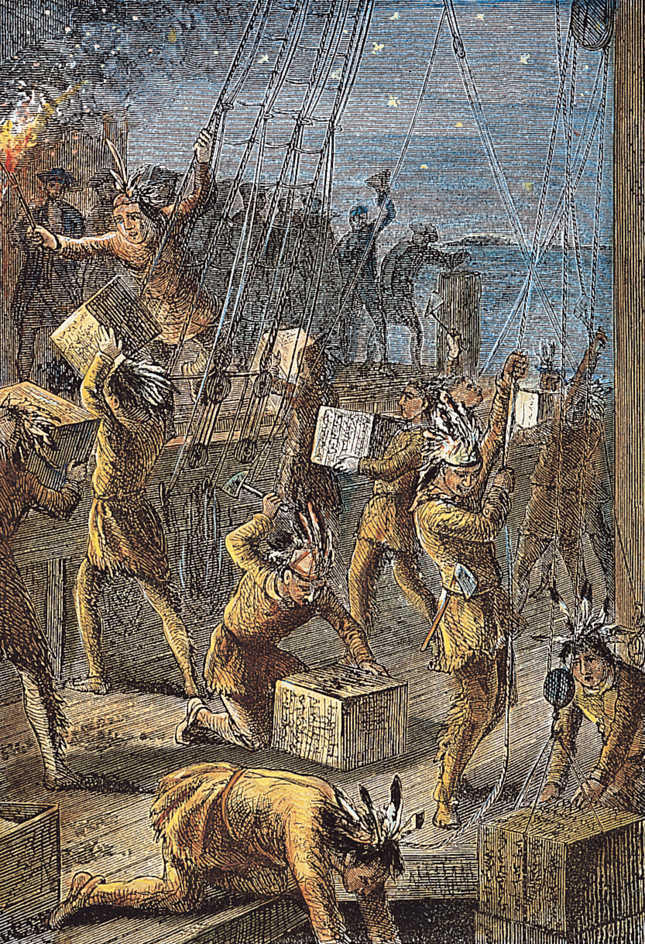Intolerable Acts were a series of British laws to which the American colonists strongly objected. The laws were passed by the British Parliament early in 1774. They were intended to punish the people of Massachusetts for destroying the tea that they threw into Boston Harbor in December 1773, and to strengthen British authority in Massachusetts (see Boston Tea Party ). The laws, also known as the Coercive Acts, became an important force in uniting Britain’s 13 American Colonies against British rule.

The first act, the Boston Port Act, closed the port of Boston. According to this law, the port would be reopened only after Bostonians paid for the tea and showed a proper respect for British authority. The second act, the Massachusetts Government Act, changed the charter of Massachusetts. It provided for a council appointed by the Crown and prohibited town meetings without the governor’s permission, except to elect officers. The third act, the Administration of Justice Act, provided that any officer or soldier of the British government who was arrested for murder could be sent to England for trial. The fourth act, a new Quartering Act, made colonial authorities responsible for housing British troops, using uninhabited private buildings and houses when necessary.
Americans mistakenly believed that a fifth act, called the Quebec Act, was also intended as a punishment. This act declared that Quebec was to be led by an appointed governor and council, extended the province of Quebec southward to the Ohio River, and granted freedom of worship to Roman Catholics in the province.
